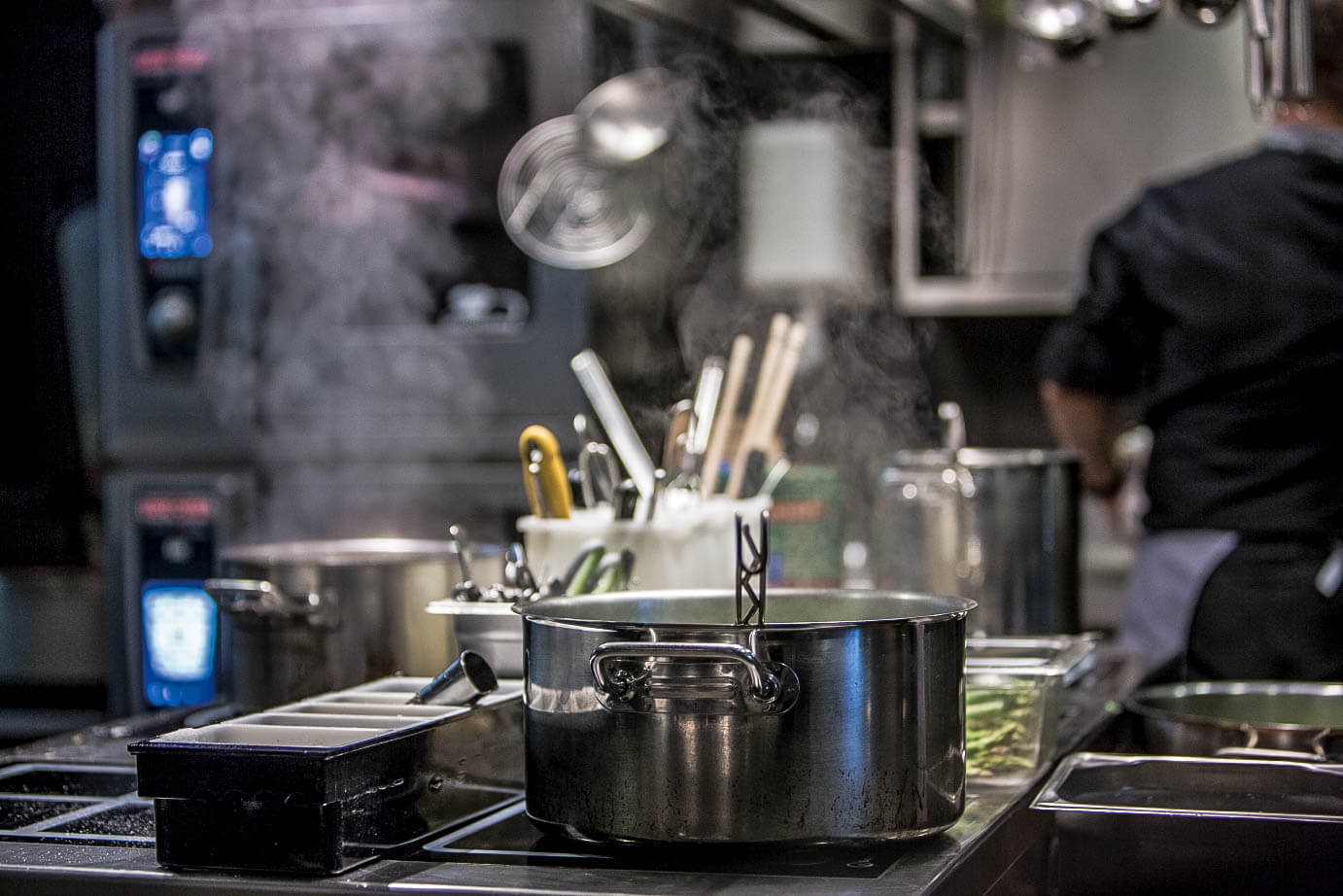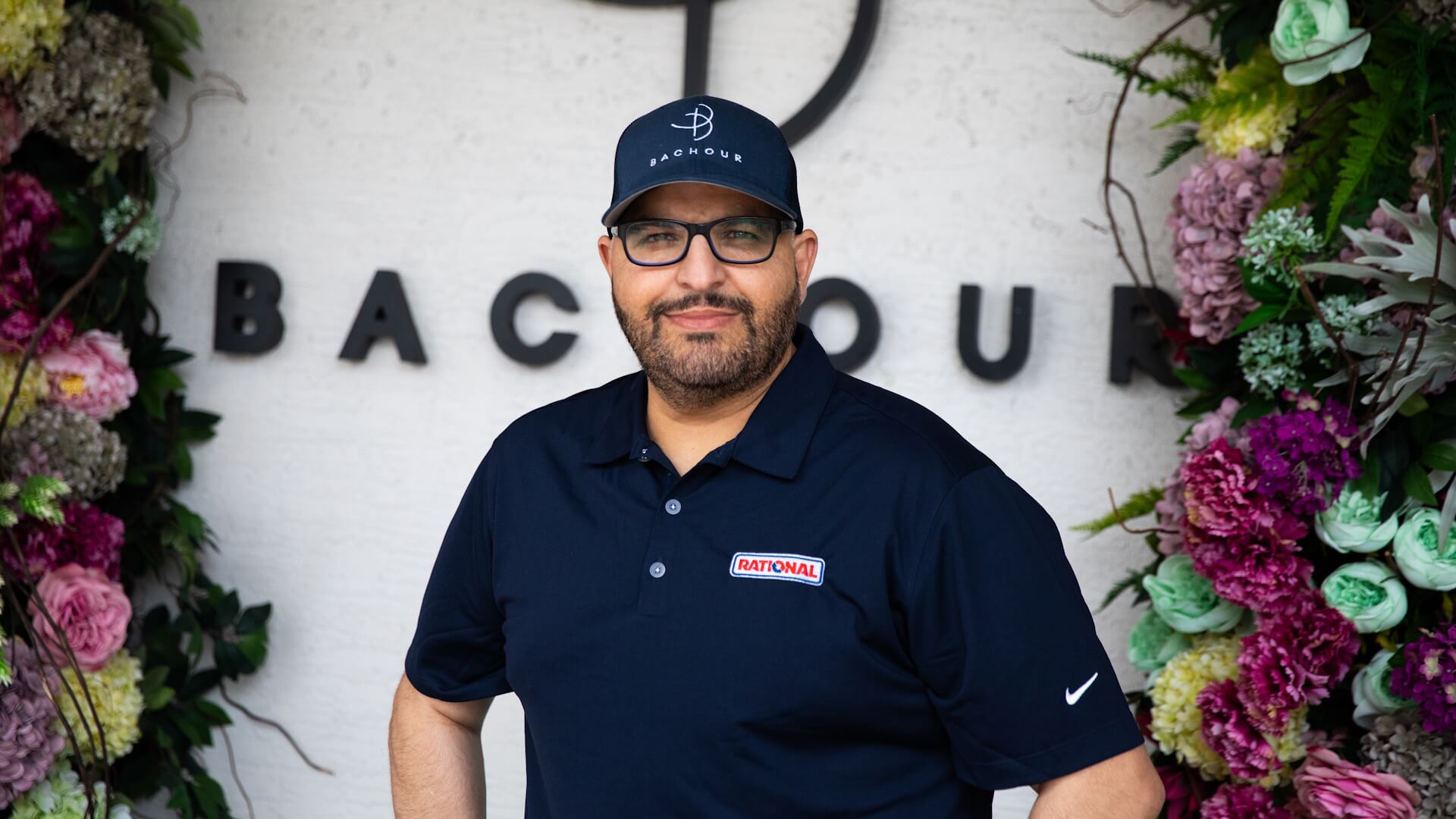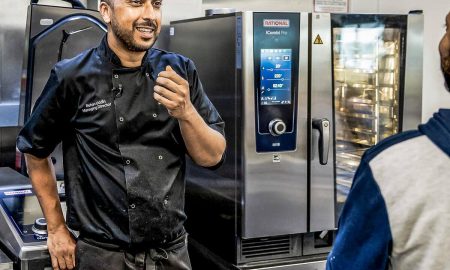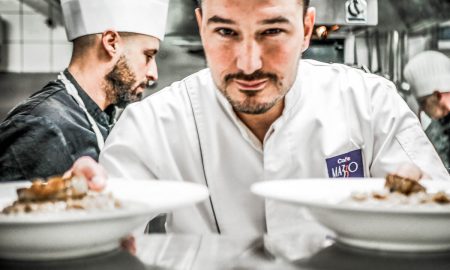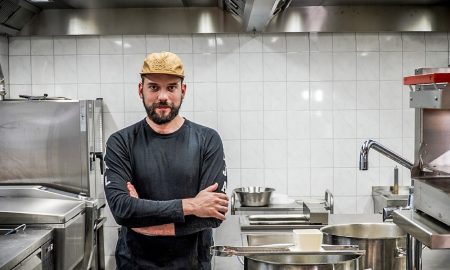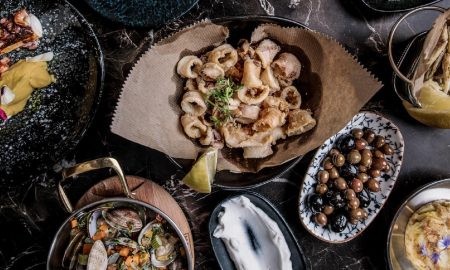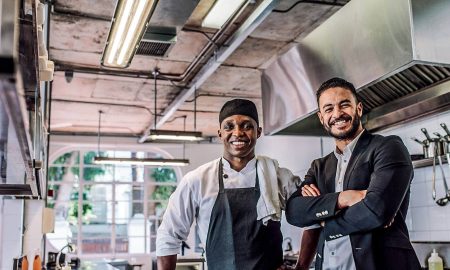Twenty years as a Michelin star chef taught her a lot, of course, and when she isn’t sharing her knowledge on television or in cookbooks, she’s passing it on through her cooking school in Hamburg. In May of 2018, Poletto joined forces with the Solinger knife manufacturers Zwilling to found ‘The Twins by Cornelia Poletto‘. Now Shanghai residents have had the opportunity to learn and enjoy Poletto’s culinary artistry as well. Here, too, the concept is the same: a shop, a cooking school, and a restaurant, all under one roof.
Cornelia Poletto on the subject of the shortage of skilled staff, staff recruitment and the next generation of restaurateurs
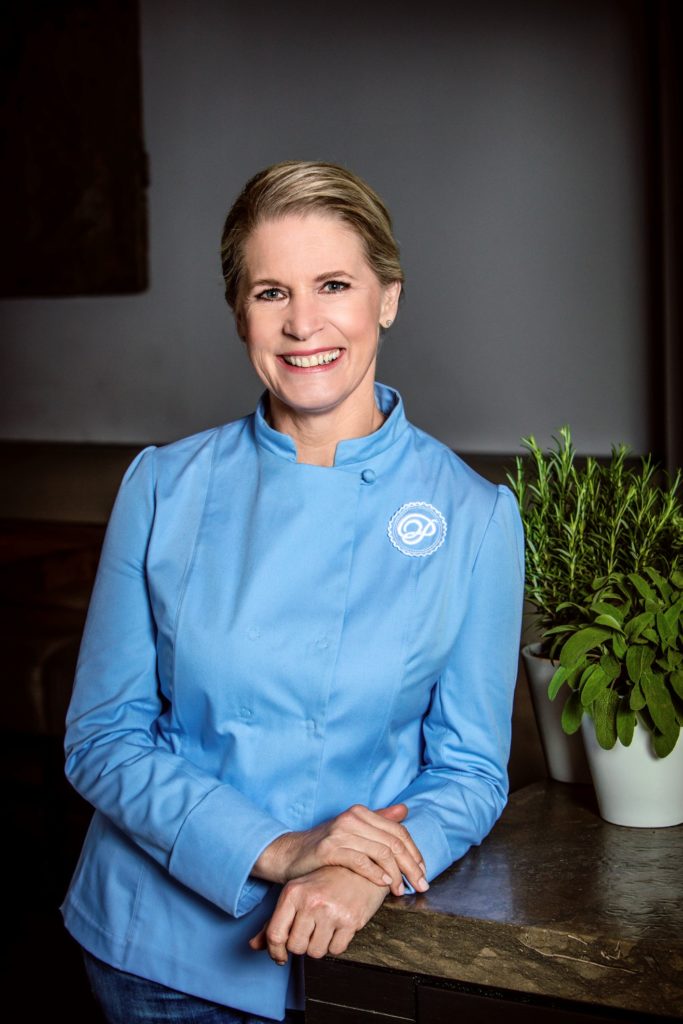
Image: www.studiolassen.de
Ms. Poletto, do your employees enjoy working for demanding customers?
“Definitely. Demanding customers mean you face new challenges every day — as a product scout who searches out the finest ingredients, and as a cook who presents those ingredients on the plate as a finished dish. Striving for perfection in terms of taste and culinary skill is a real motivator, and my team and I think it’s a lot of fun. We grow along with our customers’ expectations. And the great thing is that we always get immediate feedback.”
A lot of commercial kitchens, both here and abroad, are experiencing a great deal of employee turnover — headhunters are jumping at every chance to lure good cooks away to new positions. The members of your kitchen staff are certainly considered professional experts in their field have you been losing your highly trained team members, too?
“This really is a widespread problem in the culinary world, which is why I think it’s so important that we focus not only on customer care, but on employee care as well. I would say that showing appreciation is key to building team spirit and loyalty, and I definitely treasure the fact that some of our people have been part of the Poletto family for fifteen years and completely identify with everything we’re doing here, one hundred percent.”
Why are your employees loyal to you?
“Like I said, the secret is appreciation. I make a real effort to work around employees’ individual needs, for example when it comes to scheduling. Two long-time employees of mine became mothers right around the same time; both of them came back after maternity leave. We found a way for them to balance their family lives with their careers in the fine-dining industry.”
In a restaurant like yours, having a highly qualified team is especially important. How do you find new employees? Social media? Events? The old-fashioned way?
“Having a good network plays a big part in it. I find a lot of people through personal recommendations from others. Organizations with their own job forums, such as Jeunes Restaurateurs, are great as well. Of course, restaurants in attractive cities like Hamburg have it easier than those out in the country when it comes to recruiting. Social media doesn’t play quite as much of a role for us.”
What kind of image do you think chefs have, or other members of the restaurant team have?
“I think that people have started holding chefs in greater esteem in recent years, especially because the culinary world has developed a greater media presence. Plus more and more people are starting to think about things like nutrition, ways of preparing food, etc. I think it’s very important that the balancing act between service and the kitchen be visible to the outside world, which is why my pastry chef, or my chef de cuisine, or other members of my kitchen team regularly go out to customers’ tables and tell them about what they’re currently working on.
A recent survey of more than 2,400 restaurants revealed that, here in Germany, the shortage of skilled culinary staff is considered the biggest problem facing the gastronomy world — a bigger threat than terrorism or the global economic situation. Has it been that drastic for you, too?
“There’s no question that there’s a labor shortage in the hotel and restaurant industry, even if I don’t think of the situation as quite that dramatic. But it’s incredibly important that we don’t only work in fixed teams with experienced staff members — I think we have a duty to train new people. Otherwise, it won’t be long before we really can’t find any skilled people. Thinking of trainees as cheap labor is totally the wrong way to go about it. Our goal needs to be to get them excited about what we do. If I stick a new trainee in the corner and have him clean mushrooms all day long, it’s not exactly going to boost his motivation.”
Are new, young, dedicated professionals joining the industry?
“Finding new people isn’t a big problem when it comes to cooking. But finding good service staff is practically impossible. I heard that last year in Hamburg, only 23 people completed traineeships as restaurant service professionals. That’s serious.”
QUESTIONS for Christiane Grosche, restaurant manager at ‘CORNELIA POLETTO’, and chef de cuisine Robert Stechmann
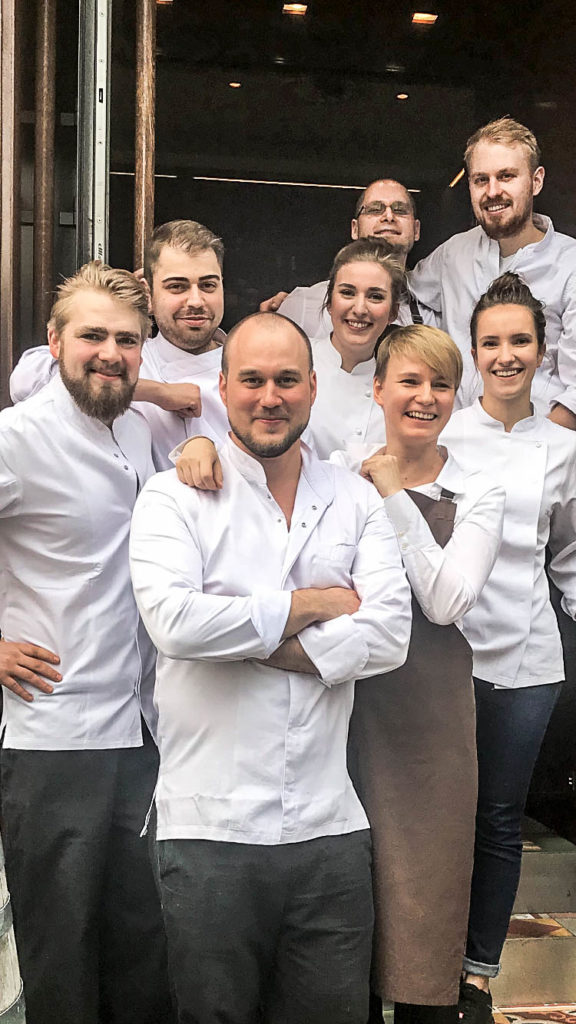
Image: Anja Kuhweide
Your restaurant does a lot of job training. Is it hard to find good trainees?
Christiane Grosche (CG): We make an effort to do training. But the kitchen is one thing; service is a very, very different situation. Hardly anyone is interested in trainee positions for service jobs. These days, people don’t really just stumble into that world anymore, either. Once upon a time, you’d have people who started out waiting tables here and there to help out, and then stuck with it.
Robert Stechmann (RS): We usually have two trainees in the kitchen and one in service. This year, we had a great crop of applicants, so some of the ones who did trial periods with us, we were actually able to recommend onward to friends at other restaurants. That was a really good position to be in.
What about after they finish their traineeships? Do the new chefs stay on at your restaurant?
RS: There’s a rule of thumb in the gastronomy world that young chefs ought to experience a lot of different kitchens. Youngsters need to change stoves every one to two years. We encourage our trainees to do the same, even if it’s hard for us to say goodbye to some of them.
So where else have you been, Mr. Stechmann? Did you travel the seven seas?
RS: My career path was a little different. I did my traineeship at Poletto and then worked for a while here at Cornelia Poletto’s new restaurant. After that, I decided I wanted to study ecotrophology and work more on the food industry side of things. But being a chef is my dream job, so I came back here and worked my way up to chef de cuisine. I just tell myself that there’s always time to get a job in marketing or product development later on!
Does working here in fine dining offer you any particular advantages?
CG: We’re paid fair wages, and everyone on the team places a lot of importance on us having enough people in the kitchen and in the front of the house. Making that happen really
isn’t easy nowadays, but having enough people is the only way that we can work normal hours. So actually everyone working in gastronomy today can tell there’s a shortage of trained staff in the industry because it means they have to work harder.
Thanks very much for your time.
Further information:
Six tips for beating skilled staff shortages


